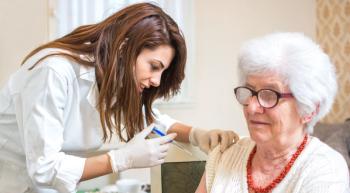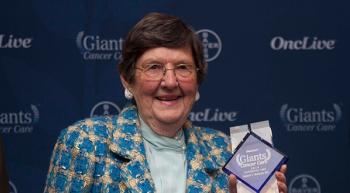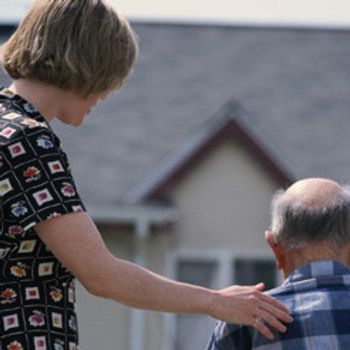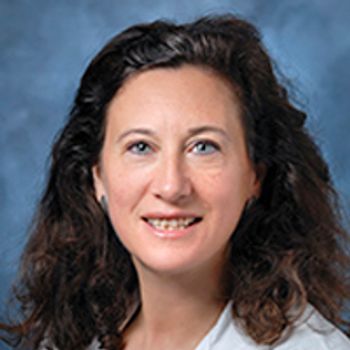Articles by Beth Fand Incollingo

Makers of breast implants should supplement their labeling to include a boxed warning about health problems that can arise from the devices, along with a patient decision checklist that highlights those concerns, according to final guidance issued today by the Food and Drug Administration.

At a virtual event Sept. 17, CURE® also named Elizabeth Farrat, B.S.N., RN, CCRN-K, the winner of its first-ever Finest Hour Award for selfless achievements in care during the COVID-19 pandemic.

The cancer mortality rate declined more in states that expanded Medicaid coverage than those that didn’t follow the passage of the Affordable Care Act (ACA) of 2010, a study found.

In essays by patients, colleagues, and family members, three nurses were honored for their life-changing compassion.

Conducting a geriatric assessment, predicting chemotherapy toxicity, and considering polypharmacy are all crucial in this growing population, experts say.

Nurse educators are more effective than electronic guides in ensuring that patients with cancer are safely discharged from the hospital without readmissions, a study found.

An audit of one institution's administration shows that adhering to a detailed list of tasks prevents missed steps in a complicated process.

Health care providers need to break the cycle of inappropriate symptom communication to help improve patients’ quality of life.

Interventions must be devised to help women compensate for losses in concentration and psychomotor speed, researchers say.

Creating a way to analyze the postings of patients and caregivers seeking peer support can give doctors and researchers insights about how to help them.

The Food and Drug Administration decided to keep the device on the market, but wants to know more about the illnesses they may potentially be linked to.

Women who took part in a supervised exercise program during adjuvant treatment for breast cancer had better cardiovascular function than women who did not participate in the program, according to the findings of a study presented at the San Antonio Breast Cancer Symposium (SABCS).

A thousand oncology nurses celebrate CURE® Extraordinary Healer® Award recipients at annual ceremony.

Cancer immunotherapies are a promising development, but taking care of patients who are using these drugs can be a challenge for oncology nurses.

When a woman learns she carries a BRCA gene mutation—and thus, in her lifetime, faces an 87% risk of developing breast cancer and a 63% risk of getting ovarian cancer—she has a difficult decision-making process ahead of her. One nurse created an easy-to-understand guide that explains all options and their pros and cons, for use by oncology nurses working with BRCA mutation carriers who do not have cancer—previvors.

Researchers recommended that survivors of younger-adult breast cancer learn and watch for the signs and symptoms of heart problems or failure, such as shortness of breath and fatigue, and always go to their follow-up appointments, where health care practitioners may keep tabs on their heart health.

How are patients with cancer triaged at key points throughout their journeys? Who helps them understand their diagnoses or treatments and prioritizes what to do next? Who pulls in the resources needed to make sure patients get what they need as expeditiously as possible?

Many adolescent and young adult (AYA) survivors of cancer end up "lost to follow-up," according to recent research. Nurses charged with patient education should take heed, and be sure to stress the importance of follow-up care to their AYA patients and their families.

Results of a large study showed that postmenopausal women who lost 5% or more of their body weight were 12% less likely to develop breast cancer than those whose weight remained stable; those who lost 15% or more reduced their risk by 37%.

Jimmie C. Holland, MD, known as the mother of psychosocial oncology, died last month at the age of 89. The oncology community has lost a pioneer in the integration of humanity into cancer care.

Palliative care can help alleviate physical symptoms or side effects, ease difficult emotions and anxiety, resolve worrisome questions and even prolong life.

What can be done to improve quality of life for people with metastatic breast cancer (MBC), which tends to lag in comparison to the experience of those with earlier-stage disease?

According to new research, pregnancy does not increase the risk of recurrence for women who have had early breast cancer.

Expert Ilana Cass, MD, explains the options that women with have when it comes to preventing ovarian cancer.

As the intensity of treatments for childhood cancer drop, so does the rate of severe long-term side effects in these patients.

Nurses at UT Southwestern's Simmons Comprehensive Cancer Center in Dallas found a telemedicine smoking cessation program to be successful for male smokers in a local homeless shelter, as reported at the 42nd Annual ONS Congress.

As presented at the 2017 ONS Annual Congress, nurses at UPMC-Shadyside evaluated the elimination of the neutropenic diet in patients with cancer.

Deborah Mayer, a member of former Vice President Joe Biden's Blue Ribbon Panel that helped shaped the Cancer Moonshot Initiative, discusses the past, present and future of the program.

Nurses at the Stefanie Spielman Comprehensive Breast Center at the James Cancer Hospital at Ohio State University assessed the treatment standards for patients with breast cancer who are pregnant.

The use of military metaphors when discussing cancer and patients with the disease could be negatively affecting the patients, their outlook and their coping abilities.































